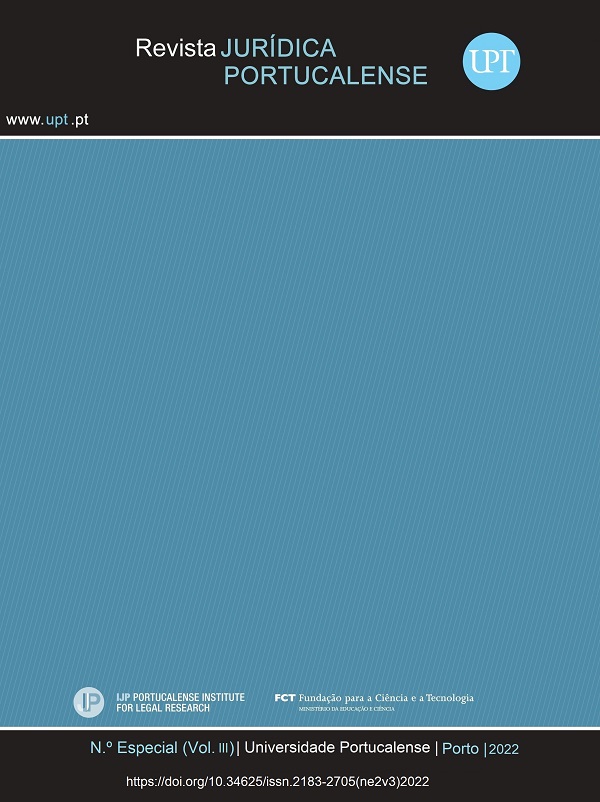The protection of the spouse of the insolvent consumer: the compatibility of CIRE, the substantive rules, and article 740.º of the CPC
Keywords:
Insolvency; Debts; Spouses; Common goods; Separation.Abstract
The insolvency of a married consumer in a community regime will necessarily result in the seizure of the insolvent’s estate, i.e., of all their assets and all the couple's common assets. The adequate protection of the non-insolvent spouse depends on the correct interpretation and application of the rules of the Insolvency and Corporate Recovery Code with the substantive rules of debts between spouses and the patrimonial guarantee for these debts that results from the Civil Code, as well as from the regime of the Code of Civil Procedure, namely, as enshrined in article 740.º. This article aims to shed some light on this harmonization, which has been the subject of some misunderstanding in the insolvency proceedings that run in the Portuguese Courts.
References
ABRANTES GERALDES, António Santos, PIMENTA, Paulo, PIRES DE SOUSA, Luis Filipe. Código de Processo Civil Anotado Vol. II Processo de Execução, Processos Especiais e Processo de Inventário Judicial Artigos 703º a 1139º, Almedina, 2020.
ARAÚJO DIAS, Cristina. Responsabilidade por Dívidas do Casal, Vol. II, Almedina, 2021.
CAMPOS, Diogo Leite de; CAMPOS, Mónica Martinez de. Lições de Direito da Família, 5.ª Edição, Almedina, 2020.
DARLINDO, RUI. “Embargos de terceiro (em particular, legitimidade subjectiva e objectiva”. Revista Jurídica Portucalense, 14, (2011), 273-290.
DIAS COSTA, Eva. “Breves Considerações Acerca do Regime Transitório Aplicável Às Relações Patrimoniais dos Ex-Cônjuges Entre a Dissolução Do Casamento e a Liquidação do Património do Casal”, Revista do Instituto do Direito Brasileiro, Vol. 2 (2013), No. 13, 14813-14837.
PEREIRA COELHO, Francisco, OLIVEIRA Guilherme de, Curso de Direito de Família, Volume I, Direito Matrimonial, 4.ª Edição, Coimbra Editora, 2008.
PIMENTA, Paulo. Processo Civil Declarativo, 3.ª Edição, Almedina, 2020.
SERRA, Catarina. Lições de Direito da Insolvência. Almedina, 2018.
Downloads
Published
How to Cite
Issue
Section
License
Authors who published in the journal agree to the following terms:
- The Authors grant the Journal the right of first publication, and other non-exclusive publishing rights, licensed under the Creative Commons Attribution License which allows the sharing of work with recognition of its initial publication in this journal.
- Authors are able to take on additional contracts separately, non-exclusive distribution of the version of the paper published in this journal (ex .: publish in an institutional repository or as a chapter in a book), with an acknowledgement of its initial publication in this journal.
- Authors are permitted and encouraged to post and distribute their work online (eg .: in institutional repositories or on their website) at any point before or during the submission process, as it can lead to productive exchanges, as well as increase the impact and the citation of published work (See The Effect of Open Access).
RJP does not apply submission, publication or any other fees of any nature. Its articles are open access, with the goal of disseminating scientific knowledge and the debate of legal topics in the area of Legal Sciences.






